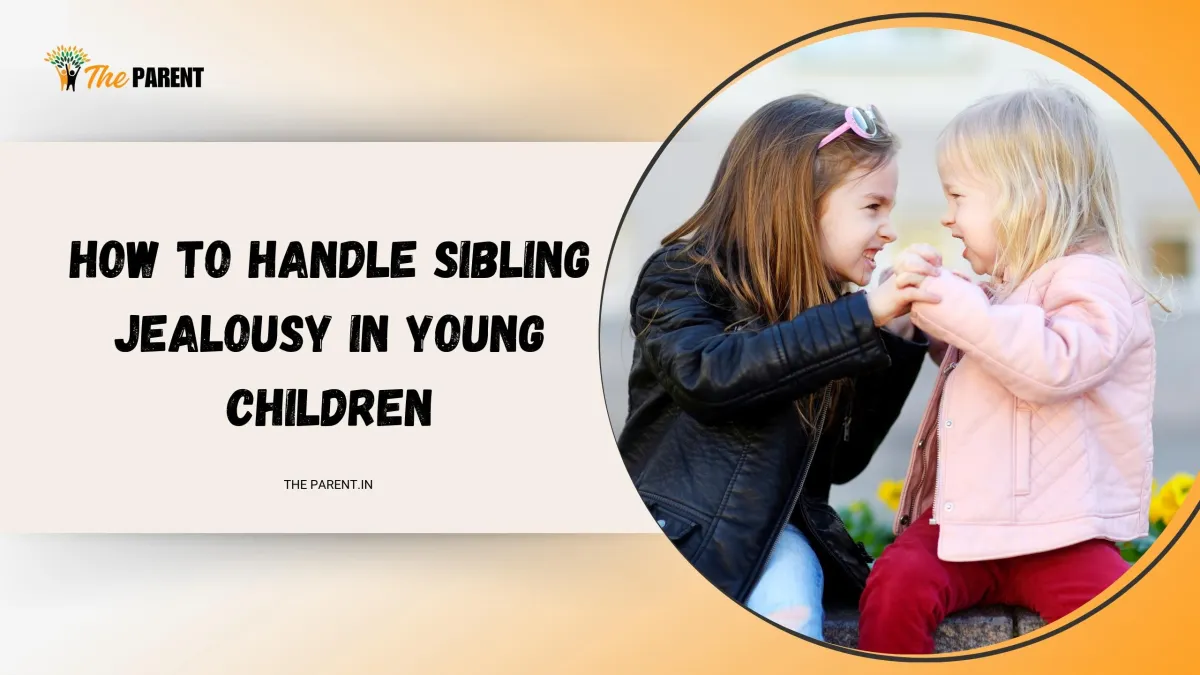
How to Handle Sibling Jealousy in Young Children
Sibling relationships are one of the most significant connections in a child’s life. However, jealousy between siblings can arise, especially when young children feel they must compete for their parents’ attention. Understanding how to handle sibling jealousy in young children is essential for maintaining a peaceful household and fostering positive relationships among your kids.
Sibling jealousy is a natural response, but it doesn’t have to disrupt your home. With the right strategies, you can help your children manage their feelings and build a stronger bond with each other.
Why Does Sibling Jealousy Occur?
Young children often struggle with:
Competition for Attention: Feeling left out when a parent focuses on another child.
Milestones: Younger siblings achieving “firsts” or older siblings gaining privileges.
Comparison: Noticing differences in how they are treated or praised.
New Baby Syndrome: The arrival of a new sibling often triggers feelings of displacement.
Recognizing these triggers is the first step in managing sibling jealousy effectively.
Tips on How to Handle Sibling Jealousy in Young Children
Here are actionable tips to address sibling jealousy while promoting harmony:

1. Acknowledge Their Feelings
What to do: Let your children express their emotions openly. Say things like, “I see that you’re upset because your brother got to go first.”
Why it works: Validating their feelings makes them feel understood and reduces resentment.
2. Avoid Comparisons
What to do: Focus on each child’s strengths and avoid saying things like, “Why can’t you be more like your sister?”
Why it works: Comparisons fuel jealousy and make children feel inadequate.
3. Spend Individual Time with Each Child
What to do: Dedicate one-on-one time with each child, even if it’s just 15 minutes a day.
Why it works: It reassures them of their unique bond with you, reducing the need for competition.
4. Promote Teamwork Instead of Rivalry
What to do: Encourage activities where siblings work together to achieve a common goal, like building a puzzle or baking cookies.
Why it works: It fosters collaboration and a sense of partnership.
5. Set Clear Boundaries for Behavior
What to do: Teach your children that jealousy is normal but hitting, yelling, or name-calling is not acceptable.
Why it works: Clear rules help them learn constructive ways to handle their emotions.
6. Celebrate Each Child’s Achievements
What to do: Acknowledge milestones and accomplishments for each child individually.
Why it works: It helps each child feel valued without overshadowing their sibling.
7. Be Fair, Not Equal
What to do: Treat your children based on their individual needs rather than trying to keep everything identical. For example, an older child may need more responsibilities and privileges, while a younger child may need extra comfort.
Why it works: Fair treatment acknowledges their unique situations without fostering jealousy.
8. Model Healthy Relationships
What to do: Demonstrate kindness and compromise in your interactions with others, especially your partner.
Why it works: Children often mirror the behaviors they observe in their parents.
Disadvantages of Being Jealous of Siblings
Sibling jealousy is a common emotion, but when left unchecked, it can negatively impact relationships and emotional well-being. Understanding the disadvantages of being jealous of siblings can help parents and children address the issue constructively and foster healthier family dynamics.

1. Strained Sibling Relationships
Jealousy often leads to conflicts, arguments, and resentment, making it difficult for siblings to bond.
Impact: It creates an environment of competition rather than cooperation, weakening the emotional connection between siblings.
2. Emotional Distress
Jealousy can cause feelings of inadequacy, sadness, and frustration in a child.
Impact: Constant comparison may lead to low self-esteem and feelings of unworthiness.
3. Behavioral Issues
Jealousy can manifest as aggressive behavior, defiance, or attention-seeking actions.
Impact: This can disrupt family harmony and strain parent-child relationships.
4. Difficulty in Developing Social Skills
A jealous child may struggle with sharing, empathy, and collaboration, which are crucial for building friendships and interacting with others.
Impact: Over time, this can affect their ability to form healthy relationships outside the family.
5. Increased Parental Stress
Constant rivalry and arguments caused by jealousy can overwhelm parents and make household dynamics more challenging.
Impact: It can lead to frustration, guilt, or feelings of failure in parenting.
6. Negative Long-Term Effects
Unchecked jealousy can continue into adulthood, creating emotional distance and unresolved resentment between siblings.
Impact: It may result in lifelong estrangement or fractured family relationships.
How to Mitigate the Disadvantages
Encourage Open Communication: Create a safe space for siblings to share their feelings.
Celebrate Individual Achievements: Focus on each child’s unique strengths to reduce comparisons.
Foster Teamwork: Plan activities where siblings work together to achieve a goal.
Model Positive Behavior: Demonstrate fairness, empathy, and love in your interactions.
By addressing jealousy early and constructively, families can avoid these disadvantages and nurture strong, supportive sibling relationships.
Common Challenges and How to Overcome Them

Challenge 1: Older Child Feeling Left Out
Solution: Involve the older sibling in caring for the younger one, like helping with feeding or picking out clothes.
Why it works: It makes the older child feel included and important.
Challenge 2: Frequent Arguments
Solution: Teach conflict resolution skills. Encourage siblings to express their feelings and suggest solutions.
Why it works: It reduces tension and promotes cooperation.
Challenge 3: New Baby Arrival
Solution: Prepare the older child in advance by explaining what to expect and emphasizing their role as a big sibling.
Why it works: It reduces feelings of displacement and builds excitement about the new family member.
Activities to Strengthen Sibling Bonds

Family Game Nights: Choose games where teamwork is essential.
Storytime Together: Read books about sibling love and friendship.
Joint Creative Projects: Painting, crafting, or building something together fosters collaboration.
Outdoor Adventures: Plan activities like treasure hunts or nature walks where siblings work together.
Long-Term Benefits of Managing Sibling Jealousy
By addressing jealousy early and promoting healthy sibling dynamics, you:
Build lifelong bonds between siblings.
Teach emotional intelligence and conflict resolution skills.
Create a positive and peaceful family environment.
Knowing how to handle sibling jealousy in young children is crucial for fostering harmony in your home. By acknowledging their feelings, avoiding comparisons, and promoting teamwork, you help your children navigate jealousy constructively.
Sibling jealousy doesn’t have to be a source of stress. With these strategies, you can turn challenges into opportunities for growth and connection, ensuring your children develop strong, loving relationships that last a lifetime.


